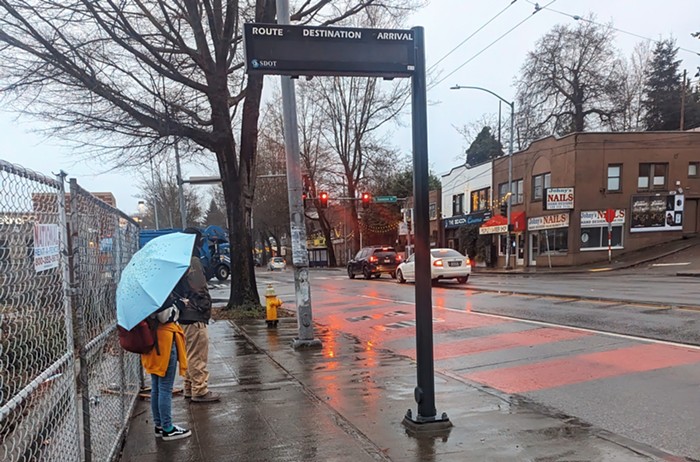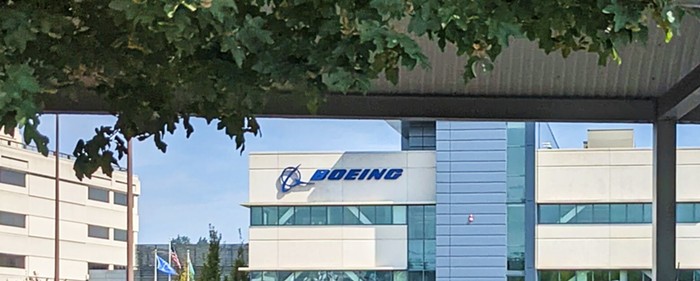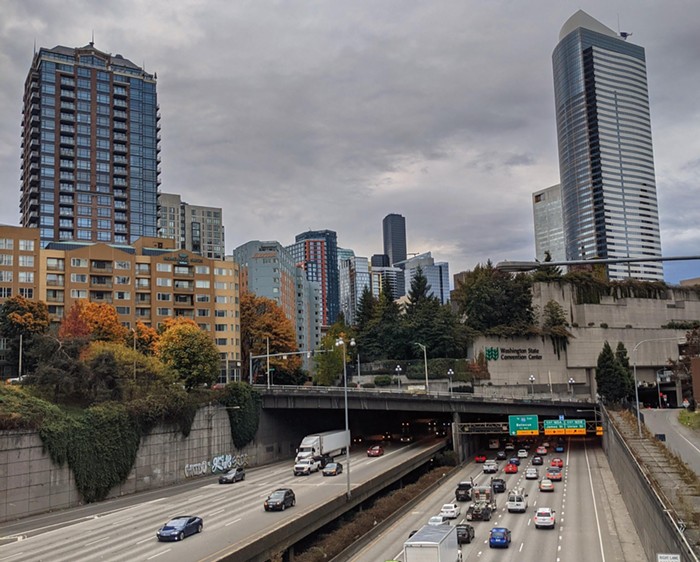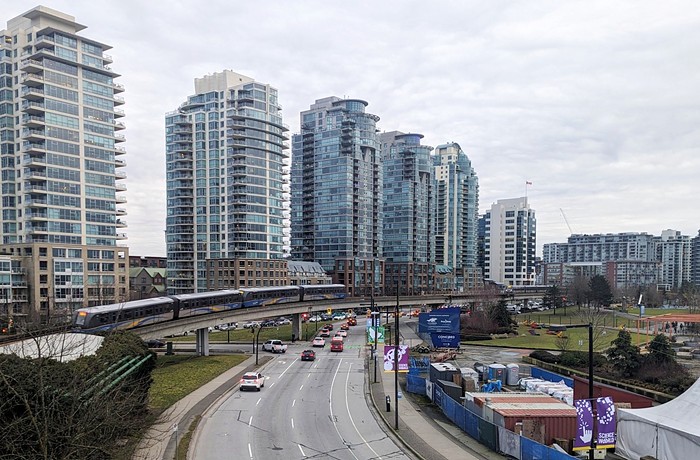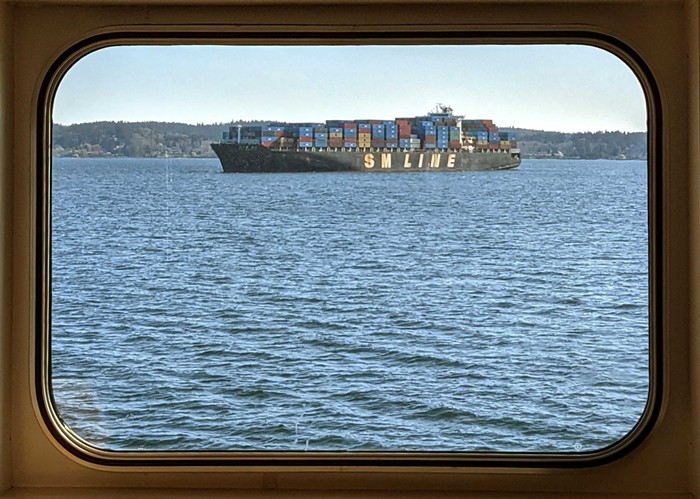
I recently heard two excellent responses to the relentless hype about self-driving cars. One was from King County Executive Dow Constantine and the other from the president of the Bullitt Foundation Denis Hayes. The former explained to me over breakfast (he had a bowl of oatmeal) that, in light of ST3, which inaugurated its official campaign on Tuesday, and whose plan he fully supports and also sees as orienting the future of Metro (it will be organized around this expansion), self-driving cars represented "another one of those red herrings." Meaning, it looks and sounds incredible but it will not solve our obvious transportation problems. Constantine: "When we have self-driving cars, they say, what a wonderful world it will be. But we will still have cars on the roads. How is this a solution?"
The problem is not that there is a driver or not, but that the car will still take up the same amount of space and cram the same streets. Where is the gain? Some say the gains will be found in increased safety and less accidents. But Denis Hayes explained to me in a conference room of his foundation's world-famous super-green building, the Bullitt Center, that the human brain can solve at a lower cost the incredibly complicated spatial problems that a computer can't or struggles to understand. “The brain uses energy at a rate of about 12.5 watts of power," said Hayes, "And Watson, the IBM Jeopardy champion computer, draws about 750,000 watts of power. So 12.5 for you and me, 750,000 for Watson [the computer].” What this means is that the energy a human brain consumes to solve standard and higher-order coming and present complexities will be much less than the energy all of the computer processing required to basically navigate a self-driving car.
So, what is all of the excitement behind self-driving cars about? And why is there more excitement about them than about cars that use little to no fossil fuels or alternative modes of transportation? They provide the appearance of progress without any real change happening (the red herring). It's also a very costly way to revive the futurism of cars—a futurism that has waned with the rise of millennials, a futurism, futhermore, that was initiated in 1939 with the Futurama exhibit at New York World's Fair.
The Verge on the driver-less car campaign Uber started this week in Pittsburgh:
It’s a significant moment for Uber and for the future of transportation, if you believe the futurists and Silicon Valley types who predict that driverless cars, especially those that can be hailed using your phone, will fundamentally change the way we get around.What's heard here is nothing but the dead voice of Futurama from the tomb of auto-utopia. Uber's ersatz hoopla also reminds us that if public transportation is to succeed, it too needs to claim the future.

